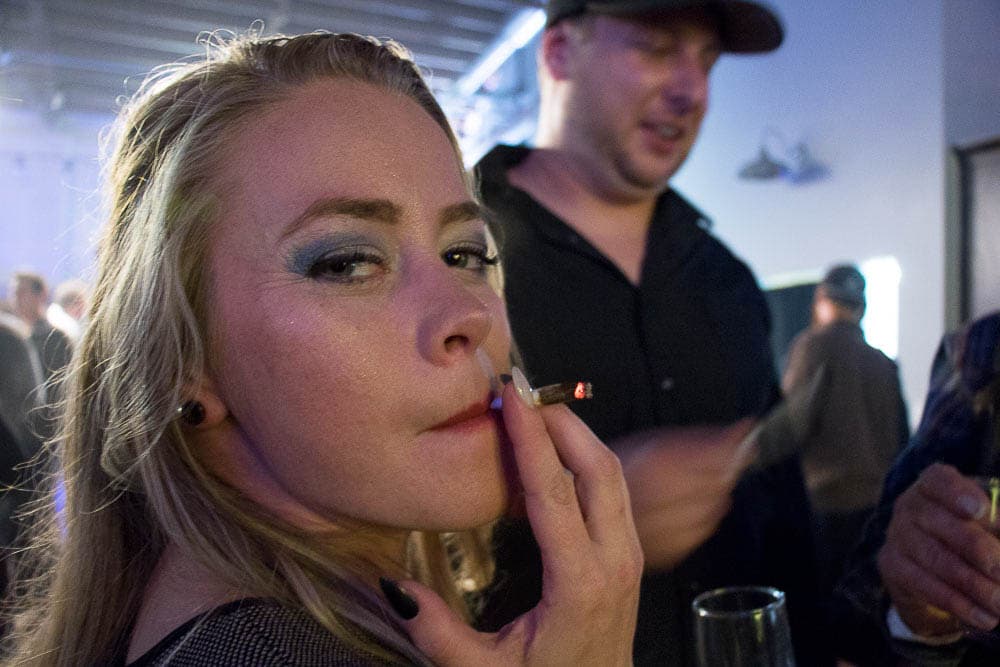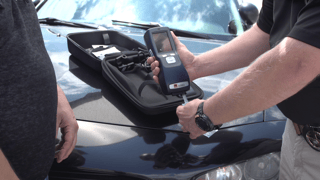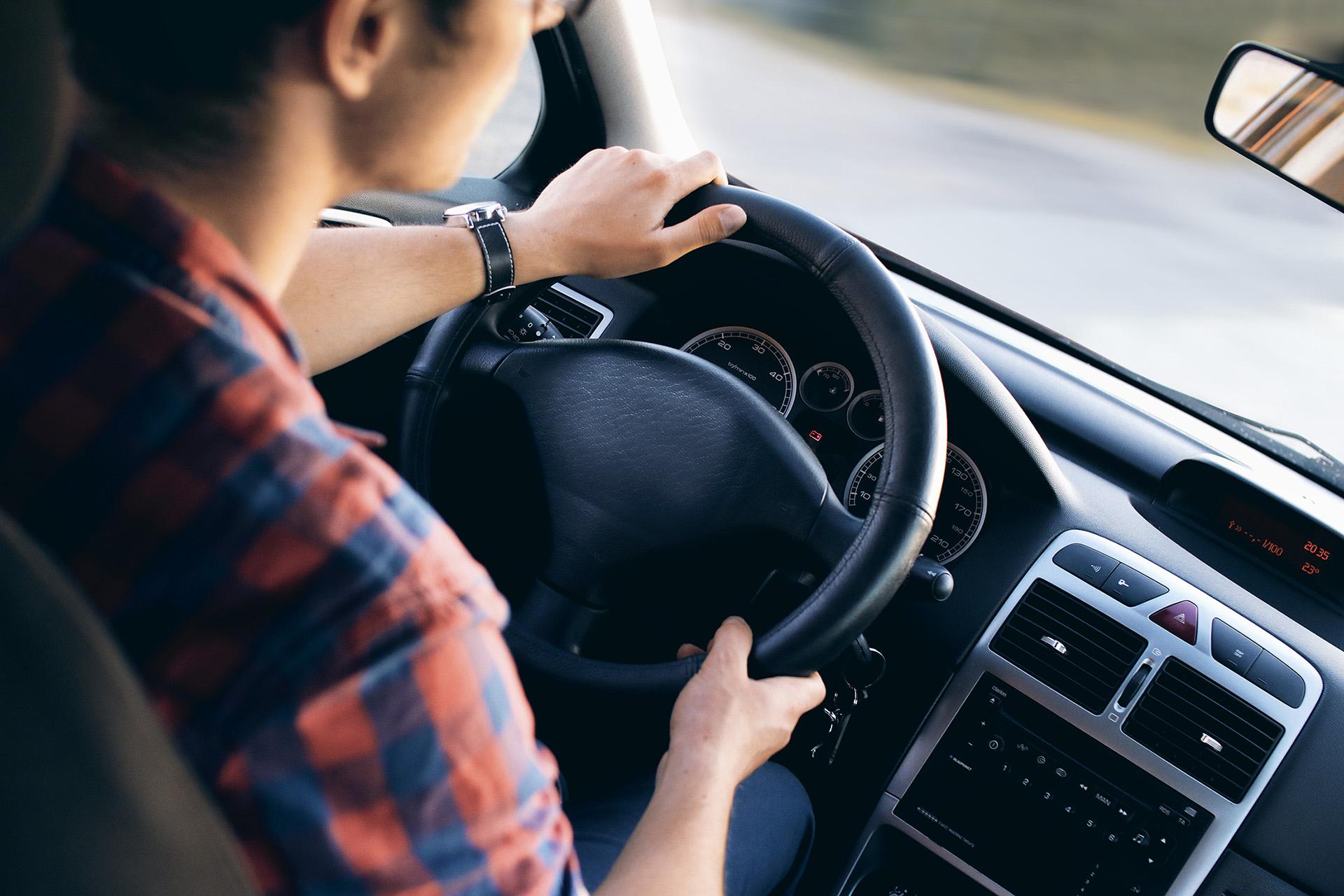
The state agency charged with keeping Colorado's highways safe started experimenting with devices that can detect if a driver consumed marijuana before getting behind the wheel in January 2015. Two years later, the search for the right roadside testing device continues.
"To be transparent, it's not going well," said Major Steve Garcia, training services branch commander for Colorado State Patrol.
Garcia said that when possibly high drivers are pulled over, it's up to them whether they want to be involved in the state's testing. He believes criminal defense attorneys publicly advising people not to participate — even though the state says it won't use the results as evidence — have hurt the number agreeing to be tested.
CSP didn't immediately release the number of people involved in the testing because the officials with that info were reportedly out of town last week for the inauguration. Calls to the agency Monday weren't immediately returned.
Right now, the agency says it don't have enough data to make a decision on which oral testing device — if any — to use.
"I don't want to make a judgment call without actual information," Garcia said. "We're having a meeting with our drug recognition experts in a couple of weeks to see how we can increase participation."
How many of us are driving high?
It's safe to say that even though marijuana has been cited as doubling the risk of crashing, a certain number of Colorado drivers still start the ignition while under the influence of marijuana. But that "certain number" is tough to get at.
"Well, I'll be very candid with you. If we just look at straight arrests, it's difficult," said Glenn Davis, highway safety manager for the Colorado Department of Transportation. "Colorado law enforcement is highly trained to detect people under the influence of alcohol, and we're making some significant gains in training officers to also recognize people that are impaired by other substances."
The number of drivers who tested positive for the psychoactive drug in marijuana, known as THC, and were involved in wrecks where someone died jumped by 80 percent, from 55 in 2013 to 99 in 2015, according to data reported to the National Highway Traffic Safety Administration.
A couple caveats with that data: Those drivers might not have been high at the time of the fatal crashes or necessarily responsible for the wrecks.
As of November, 753 marijuana-related citations accounted for 18.2 percent of all the DUIs or DUIDs issued by Colorado State Patrol during 2016. The number was up 4.2 percentage points or 128 citations from 2015, according to a CSP report.
Again it's worth making a caveat. CSP's data was based on law enforcement's opinion, not toxicology reports.
Right now, one of the only sure-fire ways to determine if drivers have more than the legal limit of 5 nanograms of THC in their system is a blood test. But under Colorado law, people can refuse the test -- with some ramifications for the driver's license. That makes it difficult to know just how many people are doping and driving.
"About a third of people refuse a test, so that means for a third of people arrested we don't know what they're on," said Samuel Cole, CDOT spokesman.
Some states like Florida and Massachusettes don't allow suspected drugged drivers to opt out of toxicology tests. But there's no current plan for Colorado to follow their lead.
The Colorado Department of Transportation looks at both CSP's data and the numbers reported to the feds while trying to determine how big of a problem driving under the influence of marijuana might be.
"We also do a survey of citizens to get their attitudes on driving high and a lot people, they don't feel it really affects them, they're unaware they can be arrested, and some of them actually feel they may be even a better driver while they're high," Davis said.

What does doping and driving look like?
"Many people do not understand the dangers of driving after consuming marijuana," said Jennifer Tibbitts Knudsen, traffic safety resource prosecutor at Colorado District Attorneys' Council. "Since the impairment does not mimic a fall-down drunk, prosecutors must adjust our approach in court."
There are a number of factors that make these cases complicated, Tibbitts Knudsen said. For one, officers are still learning what impairment looks like from new cannabis products.
"We are trying to develop training tools (like the pocket cards that detail what some signs and symptoms may be) to help officers identify signs of impairment in order to decide whether a person is able to drive safely (no matter what substance, if any, the person may have consumed)," she said in an email.
Fred Delfino believes oral testing devices could be the answer law enforcement is looking for.
To be fair, he also works for a global seller of the devices.

Delfino is the product manager for Alere Toxicology's DDS2 System, a device that uses saliva to determine if a driver has amphetamines, opiates or other drugs in their system. In the case of cannabis or THC, the device is supposed to tell officers if the driver is over the legal limit.
CSP started testing five oral devices on Jan. 1, 2015. The first round ended during summer 2016, the agency said. The second phase of testing started summer 2016 and is ongoing, the agency said. This phase of testing involves devices manufactured by Draeger Inc., Securetec and Alere.
Delfino said the DDS2 was designed specifically for objective, roadside testing and is as good as analyzing blood, although he recommends officers take a second oral sample to send to a lab for testing.
"It's not about who smokes pot, who doesn't smoke pot, who does drugs, who doesn't. It's about public safety at the end of the day," he said. "Your family or someone's driving home from work, and the last thing you want is for them to get plowed over by someone who is using, whether it's coke, heroin or marijuana."
The DDS2 could allow officers to remove suspected intoxicated drivers from the road, at least for further testing, Delfino said.
Oral testing devices would ultimately need to get state approval to provide evidence in criminal and civil cases. But even if CSP adopted them, they'd just be another tool in the agency's box.
"This isn't the only way we enforce impaired driving laws. We have a drug recognition expert program. There's the Advanced Roadside Impaired Driving Enforcement program, which is a training all troopers have been through," Garcia said. "There's a lot of other options. This is just a pilot program to provide resources to officers to test on the roadside, but we're still arresting lots of impaired drivers under the influence of marijuana, and other drugs quite frankly, across the state through other means."
Business & data reporter Adrian D. Garcia can be reached via email at [email protected] or twitter.com/adriandgarcia.












